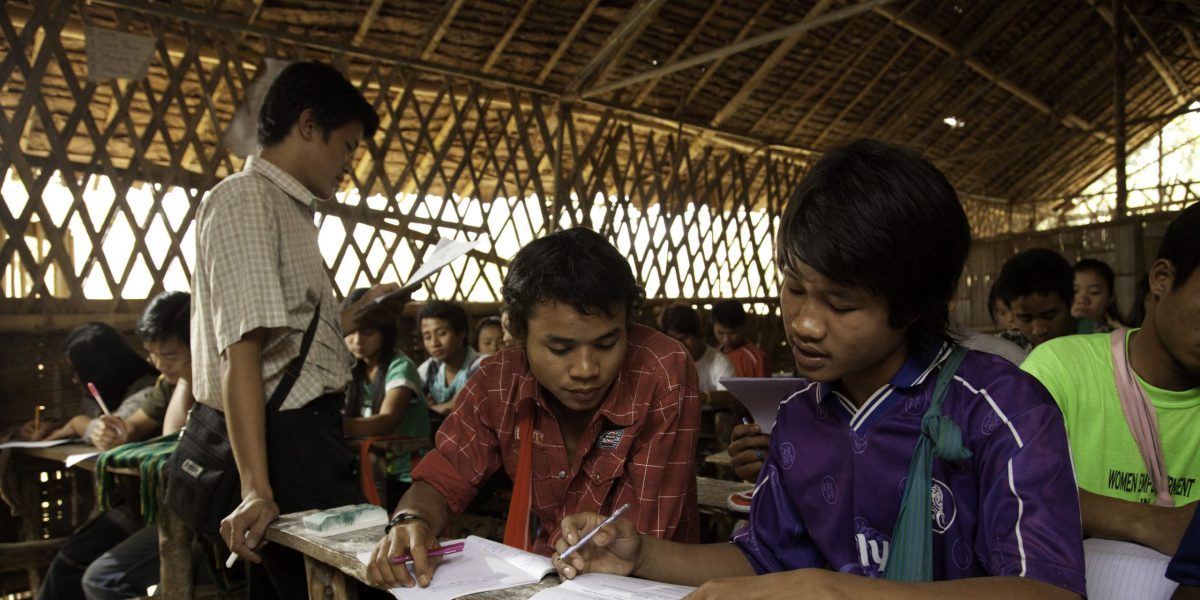
Mae Hong Son, 18 December, 2010 — With thousands of people resettled a year and new people arriving in the Mae Hong Son camps regularly, retaining and constantly training new staff are almost impossible tasks.
Because JRS’ main focus in the camps is education, JRS along with the Karenni Education Department (KnED) look for ways to have strong teachers educating the next generation.
“Resettlement is always a problem. Every year we must train new teachers,” said Jimmy, the primary school coordinator, who is being resettled. “We lose teachers. We replace them. We train others. Then we lose them. Honestly, we can do nothing for this.”
In 2010, 35 teachers out of 173 have left to be resettled in a new country and in 2009, it was almost double that. Eventually, so many teachers were resettled either during training or during the semester, that training was cut to two weeks to make sure there was a teacher in each classroom.
Many of the new teachers only recently graduate from high school and have the task of educating students roughly their age or older.
“We have a problem with resettlement. We always get new teachers. New teachers come in part way through the term and don’t know what the previous teacher was teaching,” said one student who recently graduated from high school.
There was a problem of having young people with little training in charge of a classroom, so KnED is revamping its approach. This summer, specific teachers will attend three months of new training. KnEd will choose teachers who are not applying for resettlement and express interest in working in the schools long term.
Obviously, resettlement is a cloud that hovers over the entire camp, impacting all aspects of daily life.
Students are not only affected by teachers’ resettlement, but their own as well.
“Up until two years ago, right when people received their letters of resettlement, they would quit school,” Jimmy said. “They would say, ‘I am going to America. I will learn there. Camp school is less than American school.’ Then they began to get word from people resettled about how difficult it is. Now more understand the value of preparing for resettlement.”
Fr Joe Hampson, SJ, project director, said resettlement is a major issue facing students in the camp.
“Resettlement brings out the best and worst,” he said. “Some become motivated and want to prepare, others drop out as they don’t see education as relevant.”


